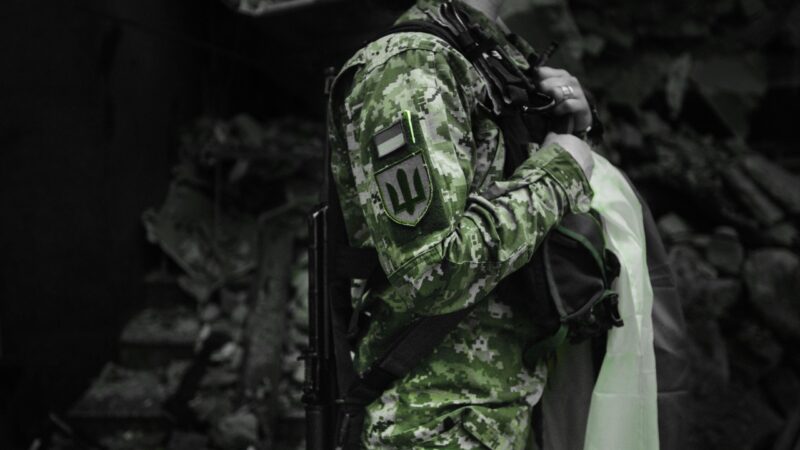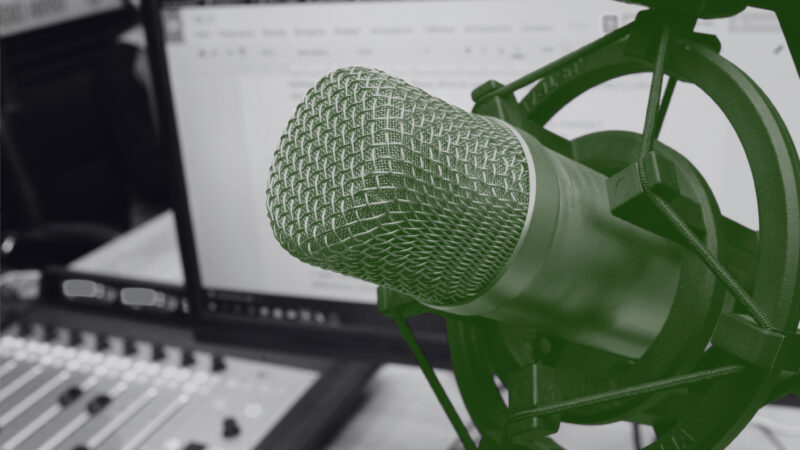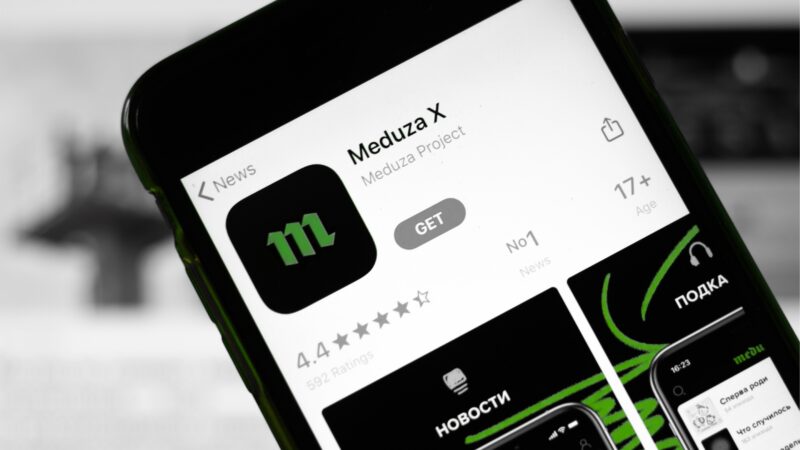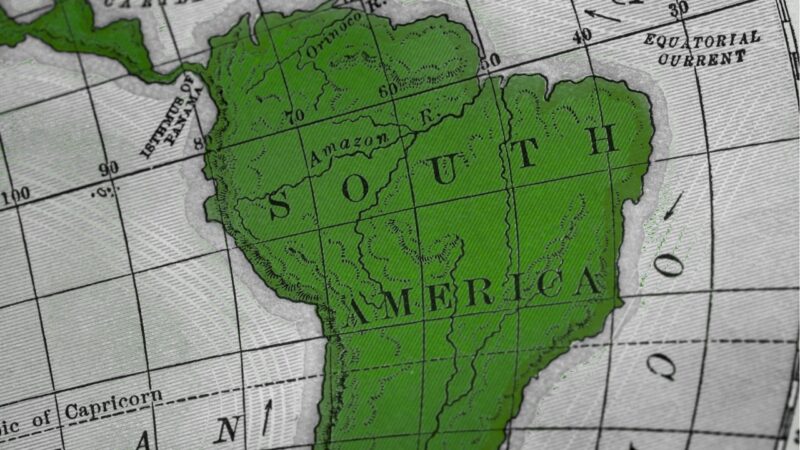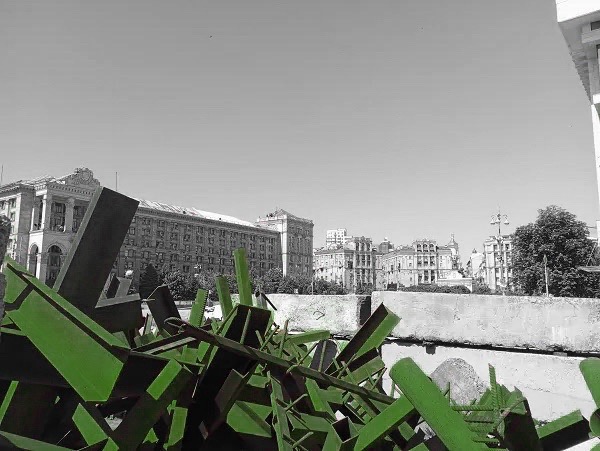Interview with Dmytro Vovk | Ukraine’s church-state relationship may be changed significantly
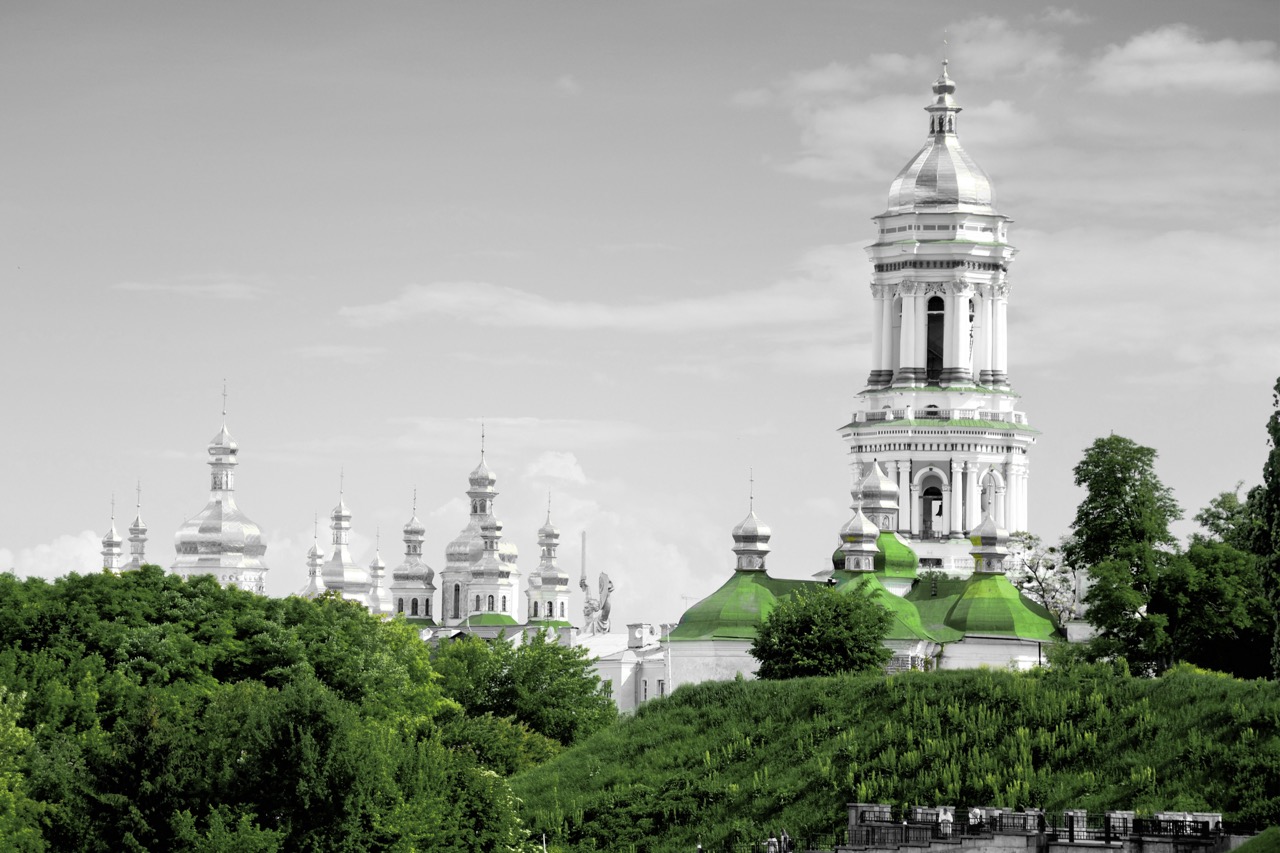
Heather Coleman: Even before the 2022 full-scale invasion of Ukraine by the Russian Federation, you argued that the war with Russia since 2014 had changed church-state relations in Ukraine. Can you describe that evolution?
Dmytro Vovk: There are two main trends here, which overlap. The first trend is securitization, and the second one is a drift to a more cooperationist model of church-state relations with respect to securitization. Since 2014, religion, and especially inter-Orthodox competition, has become a matter of security concern for Ukraine. Before the war, there were several academics, experts, and some politicians promoting this sort of “spiritual security” approach, but it was never a matter of urgent high political priority or comprehensive state policies.
When the war began, the situation dramatically changed. First, the state played a crucial role in establishing the Orthodox Church of Ukraine (OCU) and obtaining a Tomos—grant of ecclesiastical independence—by the Ecumenical Patriarch of Constantinople. In addition, the state implemented several restrictive measures against the OCU’s main rival, the Ukrainian Orthodox Church historically and ecclesiastically affiliated with the Moscow Patriarchate (UOC), including the forced renaming of the Church; more intrusive regulation of decision-making processes in order to simplify the transition of the UOC communities to the OCU; and the deprivation of the Moscow Patriarchate’s right to send their chaplains to the Ukrainian military forces. All these measures were implemented as security-related measures, either in a narrow sense of military and political security, or in a broader sense of spiritual or cultural security.
Regarding the second trend, there are several examples of the state and church becoming closer to each other. For instance, prison and military chaplaincy appeared after 2014, the state started recognizing religious educational and academic degrees, and the state gave religions the right to establish educational institutions (by the way, this did not cause any sort of spike of new religious schools or universities). We are also having an extensive discussion whether chaplains are needed for educational institutions and hospitals. So religion has become more visible in the public space. Religious prayer breakfasts have become regular practices both at the central and local levels of government.
Religions, especially the main churches, have also played some role in the promotion of Ukraine’s aspirations toward European integration and in disseminating knowledge about Russian aggression, both within the country and abroad. However, I’m not sure of the extent of their importance, especially since most Ukrainians support European integration for purely secular reasons.
The interesting question here is whether this drift will result in some form of official or endorsed church in the country, because we see some signals from the OCU and its political sponsors that they would like to have some sort of special status as the church of majority or a historical church. But at the same time, the religious landscape and the rather strong political positions of religious minorities in Ukraine will probably make it very difficult to establish a special partnership between the state and the OCU, as in, for example, Georgia, Romania, Russia, or Belarus, where there is a very strong Orthodox partnership with the state.
These trends, however, do not constitute a linear process, from less religion to more religion or from less cooperation to more cooperation. In 2019, President Zelenskyi completely changed the trend. He seems to be very secular and has no personal interest in religious issues (at least, at the level of institutionalized religion). Given that, he was mostly ignorant of religion and religious leaders in the first years of his presidency.
The situation changed significantly after the beginning of the full-scale invasion. In December 2022, Zelenskyi declared a goal to preserve what he called “spiritual independence” and to ensure that Ukrainian spiritual spaces, like the Kyiv Pechersk Lavra, for example, are liberated from Russian influence, and that Ukrainian religious communities are not affiliated with Russia. Still, the president seems to be acting more in response to growing public demands and negative attitudes towards the UOC than taking initiative and leadership himself on these issues.
This is an interesting moment, because the state seems to be simultaneously sending society two different signals. At the presidential level, Zelenskyi treats this issue as any other political issue, in a purely political manner. He feels great public pressure to deal with the UOC that the public opinion associates with Russia and tries to respond to it, but is not eager in making any tectonic changes in church-state relations and religious life more broadly. For example, I think Zelenskyi is not interested in making any sort of alliances with the OCU or plays to strengthen this church. But at the lower levels of government (for instance, at the level of the Ukrainian State Service for Ethnic Policy and Freedom of Conscience), we see signals that Ukraine’s religious landscape must be radically changed and that the UOC in its current form should somehow disappear, either by self-declaring autocephaly or by joining the OCU.
Coleman: The war has raised complex questions about the relationship between religious freedom and decolonization, national security, and human rights commitments of the Ukrainian government. You’ve been critical of the Ukrainian government’s bill, which passed its first reading in the Ukrainian parliament on October 19, that proposes a ban on religions with links to aggressor states. What were your key concerns? Do you see any evidence of them being addressed as the legislative process unfolds?
Vovk: First of all, since the beginning of the full-scale invasion, there have been several draft laws dealing with the religions affiliated with the Russian Federation, with the government’s draft being the least restrictive among them. While the draft laws proposed by opposition MPs aim to implement an automatic legislative ban, the government’s draft establishes a court procedure for the liquidation of religious organizations affiliated with Russia. And this is more in line with international approaches.
The problem of the government’s draft law, however, is that if the law is adopted, religions that have any sort of links to Russia, including historical or ecclesiastical links can be banned, based on the mere fact of these links. International human rights standards work in quite a different way.
First, Human rights norms presuppose that, first as a general rule, the state does not need any specific legislation to address religiously related concerns. They should use general criminal law or public law norms. It’s pretty simple. If you have for example, a thief who stole something in the supermarket, you must prosecute this thief with general criminal laws, you don’t have any specific regulations for religious thieves and for secular thieves. It is the same here: if you have national security crimes, you must prosecute people involved in crimes based on general legislation. The Ukrainian criminal code has already prohibited the public denial of the Russian aggression (Article 111-1), propaganda of the war (Article 436), the justification, legitimization, and denial of Russia’s military aggression against Ukraine and glorification of its participants (Article 436-2), and the spreading of ethnic and religious hatred (Article 161). Besides, criminal cases initiated by the Security Service of Ukraine (SBU) against UOC clerics prove that the state is able to use general criminal law norms to deal with these issues effectively.
Secondly, the liquidation or deregistration of religious communities is a measure of last resort, when less intrusive measures are ineffective or unavailable. And in this situation, when, as it was reported by the SBU recently, you have about seventy-three criminal cases against UOC clerics, it’s quite difficult to argue that there is no other way to address this issue other than to liquidate the whole church of more than 8,000 communities.
The third point is that religious organizations can be banned for their involvement in illegal activities. For example, if you see a religious community support the military aggression, or provide the Russian military with resources or information or spread Russian propaganda, or commit any sort of crime, and they do it collectively or the leadership of the community is involved, the ban of this community can then be an appropriate measure. However, the draft law can be interpreted in a way that it’s not just about crimes and it’s more about the general contribution of the UOC to the promotion of the so-called “Russian World” or Russkii mir doctrine, operating as a Russian proxy for soft power in Ukraine, or even about having any sort historical or ecclesiastical links with religion located or operating in Russia.
So, the draft law seems to rest on a very broad concept of national security, including not only military or politically related issues, but also including cultural identities and views of what it means to be a real Ukrainian church as a gatekeeper to the religious landscape of Ukraine.
In a way this connects the Ukrainian Orthodox Church case with a parallel process of the so-called “decolonization of Ukraine.” This includes measures like renaming streets, the removal of monuments and mosaics related to Russian or Soviet history, changes in school curriculums, and renaming food products because they still have Soviet names. But the problem here is that from a human rights perspective, there is an obvious difference between these symbolic changes and dealing with believers by forcing them to rename their communities or join a different church.
There is no problem with political debates or even the social blaming and shaming of the UOC for these issues—for clerics involved in national security crimes or for playing games with the Russian Orthodox Church before the full-scale invasion. But I doubt that it can be a sufficient legal ground for such a restrictive measure as dissolution.
And finally, there are also some rule of law concerns around the possible ban of the UOC. In January 2023, the government conducted a religious expert investigation, concluding that the Ukrainian Orthodox Church preserves canonical and organizational links with the Russian Orthodox Church. Religious expert examinations have quite a problematic history of being applied in many post-Soviet countries against religious minorities, for example, against Jehovah’s Witnesses in Russia. But even if we put aside these problems, we see that the government appointed a panel of experts, and the majority of them, I would say, were publicly and vocally affiliated with the opposing church, the Orthodox Church of Ukraine. Unfortunately, this does not contribute to the reliability of this expert investigation and to the government’s intentions in general.
Now we are waiting for the second reading of the draft law, and, there is a good chance that the law will become harsher. For example, the government might try to implement additional grounds for banning UOC communities, such as spreading Russkii mir propaganda, which can be interpreted very broadly—even icons of Nicholas II on church walls, or strengthening the powers of the Ukrainian State Service for Ethnic Policy and Freedom of Conscience to block UOC communities’ operations even before the court decision.
Coleman: What international organizations can help Ukraine to navigate the challenges of balancing human rights and national security? Are there international examples that Ukraine can draw on here?
Vovk: First of all, Ukraine is a member of the Council of Europe and the Organization for Security and Cooperation in Europe (OSCE). And I’m pretty sure that both the Council of Europe’s Venice Commission and the OSCE’s Office for Democratic Institutions and Human Rights would be happy to provide assistance to the Ukrainian government in drafting this law—as they did, for example, with the Ukrainian law regarding ethnic minorities. Both organizations have rich experience in these matters. For example, the Venice Commission has already analyzed and reviewed many religious laws in the region, including the Uzbek law on religious organizations in 2020. The Office for Democratic Institutions and Human Rights has its own team working specifically on freedom of religion and beliefs. So, they have enough expertise to help to draft this law in a way that is compatible with international human rights norms. But in order to get this assistance, the Ukrainian government should ask them, and to the best of my knowledge, for several reasons, the government is reluctant to do so.
Regarding international examples, the Ukrainian case is quite unique in that security-related concerns usually arise around small radical religious communities. Think about Aum Shinrikyo in Japan, radical Muslim groups in Western states, or totalitarian closed religious communities like the People’s Temple in the United States. In contrast to these cases, we have a massive church in Ukraine with very different believers and clerics. Some are probably pro-Russian or loyal to the Russian Orthodox Church. But many others are quite patriotic: they support the military, they join the army, they provide humanitarian aid to the forced displaced. This should stimulate the state to adopt more sophisticated policies than just attempting to ban these communities or force them to do what they do not really want to do. Of course, the UOC is not the only religious group that has found itself in such a situation. I’m thinking about, for example, the Anglican Church during the American Revolution, or French Catholic bishops that were supportive of Hitler or loyal to the Vichy Regime during the Second World War. I’m also thinking about the US policies towards Japanese Americans after Pearl Harbor. These cases, especially the Japanese one, are not fully relevant, and I’m not trying to compare and say that this is the same issue, but maybe they can teach us something about how to deal with a religious group that is not loyal or fully loyal to the state.
Coleman: Can you tell us about the religious situation on the ground in the occupied territories from a human rights perspective? Can anything be done internationally to address violations of religious freedom there?
Vovk: Well, of course, this is a very tragic story. From the very beginning of the Russia-Ukraine war in annexed Crimea and especially in the occupied parts of Donetsk and Luhansk oblasts, we have seen numerous cases of murder, torture, detentions, forced deportations, and the displacement of clerics and believers. In addition to the persecution of all religious groups except the Moscow Patriarchate, we also see the expropriation of religious properties, incitement of religious hatred, humiliation of religious minorities, and desecration of religious items. One Baptist priest told me—and I come back to this example again and again—that pro-Russian military groups in 2014 used Protestant Baptist bibles to keep fires going while they were preparing food.
When the full-scale invasion started, these practices were transferred to newly occupied territories in Zaporizhia and Kherson. Since February 2022, we have had more than 500 cases of religious premises, cemeteries, and memorials that were damaged or destroyed by the Russian military. Many of those properties belong to the UOC, by the way, but they also include mosques, Holocaust memorials in Kyiv and Kharkiv, Catholic and Protestant properties, the Karaite kenesa and so on. Most recently, 59-year-old Fr. Stepan Podolchak of the Orthodox Church of Ukraine was killed in Kalanchak in the Russian-occupied Kherson region. Overall, at least 30 Ukrainian clerics of different denominations have been murdered since the beginning of the Russian full-scale aggression.
What is also important is that Crimea and Eastern Ukraine, were regions flourishing in a religious sense. There were many religious minorities, including Protestants, Jehovah’s Witnesses, Latter-day Saints, Hari Krishnas, and many others. And many of those communities are simply gone. And even when those territories are liberated and some sort of transitional justice measures are applied, it is evident that those communities will never come back. This is one more aspect of the enormous damage Russia has caused to Ukrainian culture.
With respect to what international organizations or international actors in the domain of freedom of religion and belief can do, I doubt that they can do much at the time of full-scale war to support believers in the Russian-occupied territories. They should collect information about violations of freedom of religion and belief. Sometimes, it’s quite difficult to focus on religious freedom, specifically when you have such gross violations against the right to life, the right not to be tortured, or the right not to be forcibly displaced. Nevertheless, it is important that human rights monitors collect this information, and share this information with Western governments and international organizations, in order to have this information taken into account when sanctions against Russia are being developed. Because this is also part of the story—what Russia has done to all those clerics and believers. This story will hopefully go to an international tribunal or national courts at some point.
Coleman: What role do you think religious groups will play in the reconciliation in Ukrainian society after the war?
Vovk: First of all, in my view, it’s not a conflict where religion plays a major role. The Russia-Ukraine war has a religious dimension: the Russkii mir doctrine, Patriarch Kirill’s blessing of Russia’s aggression, and Putin’s attempt to utilize religion to justify that Russia has some sort of claim over Crimea or over Eastern Ukraine. However, it was a quite secular Russian nationalism and chauvinism, though sometimes wrapped in a religious cover, that paved the way to this war. A good proof of that is the fact that at the grass-roots level the Russian public mind interprets this conflict as a “war against the West,” a “war against America,” and a “war against the Kyiv regime,” but never as a religious war.
Again, we see that the Russian Orthodox Church has no agency in this war; it is just one more weapon in Putin’s hands. It’s striking that what Patriarch Kirill and the whole Church are now doing is actually against the interests of the Church. The inter-Orthodox crisis in Ukraine can be resolved in any way. But here will be no Ukraine as a part of the Russian Orthodox Church after the end of this war. This means that the Russian Orthodox Church has no ability to perceive its own interests in this war.
Regarding Ukrainian society, it’s evident that Ukraine is going not only through a horrific war and fight for its existence but also through significant structural societal changes regarding culture, religion, historical memory, the vision of the future, etc. While going through these changes, it’s important that Ukraine manages to preserve its status as a country where religious freedom is protected, and that the state does not intend to become too intrusive or too active of a player in the religious field. This goes far beyond the UOC case. Religious freedom and pluralism and state neutrality in spiritual issues are crucial for democracy, freedom of speech, social cohesion after the war, and, more practically, for European integration. This is in the main interest of all Ukrainians, both religious and secular.
Interviewer: Heather J. Coleman is the Director of the Research Program on Religion and Culture at the Canadian Institute of Ukrainian Studies at the University of Alberta, Canada.
